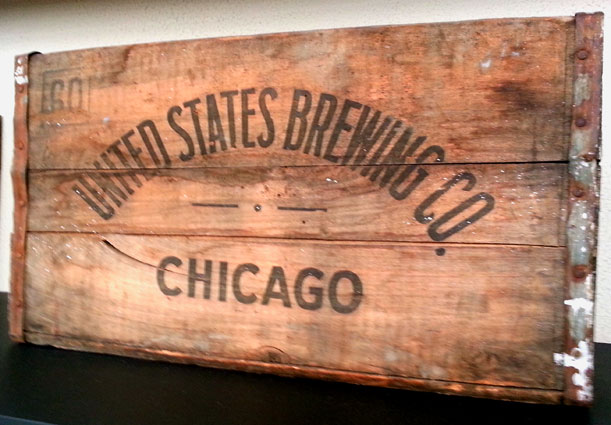
Well, she was an American girl
Raised on promises
She couldn’t help thinkin’
That there was a little more to life somewhere else
– From American Girl by Tom Petty
We come on the ship they call the Mayflower
We come on the ship that sailed the moon
We come in the age’s most uncertain hour
and sing an American tune
But it’s all right, it’s all right
– From American Tune by Paul Simon
A couple of days ago, Stephen Beaumont spotted a few kids on his lawn and wandered outside, holding a goblet hand blown in Belgium. He chased those rascals off, yelling: “It’s NOT Belgian or Even Belgian-Style. It’s NOT Belgian or Even Belgian-Style. It’s NOT Belgian or Even Belgian-Style.” He then proceeded to quote something he wrote on Facebook.
After my personal déjà vu moment passed (on Sunday I sent this text message to a homebrewer, “You mean an American beer fermented with a Belgian-sourced yeast.”) I got to thinking about how much sense it would be to replace Belgian and Belgium in this sentence:
“Belgian beer is beer that is brewed and fermented in Belgium. Period.”
German beer is beer that is brewed and fermented in Germany. Period.
American beer is beer that is brewed and fermented in America. Period.
Kansas City beer is beer that is brewed and fermented in Kansas City. Period.
That does not leave me feeling satisfied. Just to be clear, I’m not arguing that Mr. Beaumont was wrong. I would have chased those rowdy kids off my lawn, too. But I’m left thinking there’s more to what makes a beer Belgian or Polish or Floridian than if it qualifies for a passport by birthright.
Certainly what it means to be an American beer these days.
I agree. I’ve had letter-perfect versions of APA in America, England and Canada; it’s all APA to me. I just had in Toronto an English-style bitter anyone would think is English pale ale.
IMO, beer styles are becoming internationalized, a fundamental shift from the largely national coverage you could give it, say, in 1978.
The premise “that Belgian beers have no style, since each brewer crafts their brands in their own particular style or styles” doesn’t necessarily hold true for “German-style” beers or English-style” beers. I’m not sure what “American-style” beers are this week.
I’m not sure that I accept the premise about Belgian beers either. So many “Belgian beers” share some similar characteristics that immediately identify them as “Belgian” when you taste them.
I’m going to go yell at clouds.
Jerry: I agree that much Belgian beer has a characteristic yeast taste, not quite all, but most of the ales I’ve had and many of the lagers. Lambic will be different and some of the fruit beers. To me it’s a useful way to indicate a certain taste to a North American, but certainly a label should state Belgian-style at most, not Belgian, there I agree with Steve. Or say how it’s described on a blackboard at a pub, too often the wording is too loose in this regard.
there’s a saying in spanish that says “uno no es de donde nace, sino de donde pase” which means something like “i’m not from where i born, but from where i’m going”. Maybe the “Belgian Styles” made in America are inspired by the beers made in Belgium, but my question now is, how long would take to make that styles “american citizen” like happens with the Pale Ale for example?
I know a bunch of people who their very first experience with “belgian style” beers were made by american brewers, maybe is wrong to classified them as “Belgian Beers” but for the consumer who doesn’t get into beer classifications that much is a great reference.
I don’t agree based on my experience. Just today (in Toronto) I had two amazing cask porters made in the English style, one 5% ABV, one 7.5% made with brown malt in the 1800’s style. No one could tell tasting blind these were made in Canada. It depends on the beer (or brewer), in other words. These puppies weren’t going anywhere other than down the hatch.
A fair point, Eslem. I prefer that a brewer call a beer dubbel or saison (even though that opens another can of worms), but that assumes the beer is being sold by somebody beer experienced, who can then talk more about the beer to a less experienced customer. That’s when the words “Belgium” and “Belgian” come up. Of course, I’m a pedantic so-and-so.